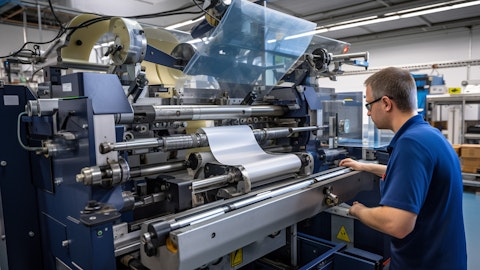The integration of financial technology with automotive data is a tectonic shift across industries in the era of digital transformation. This is an intersection that’s changing the way vehicles are bought, financed, insured, and even resold-a lucrative frontier for investors. Combining the analytical power of fintech with huge volumes of automotive data creates new solutions to fight inefficiencies and further improve transparency in the automotive market.
According to https://vingurus.com/ VIN number check acts as a catalyst in the vehicle auction industry by offering very critical tools. These tools come with full vehicle history data that enables buyers, sellers, and investors to make wise informed decisions and avoid possible pitfalls.

A customer buying a used car with the help of a finance specialist.
Understanding the Role of Fintech in Automotive Data
Fintech has disrupted many industries, and that includes a number of changes in the automotive sector. By embedding financial services into data analytics, fintech solutions tackle long-standing fraud, inefficiency, and lack of transparency challenges within the automotive market. How fintech is transforming the usage of automotive data in the following ways:
1. Enhanced Transparency in Vehicle Transactions
Much is to be improved, which includes inaccessibility to reliable information concerning previous mileage about one or another vehicle. Every year, buyers and investors pray for certainty that the record-keeping of the vehicles they stand buying proves to be accurate concerning records, proper care documentation, and any instances relating to damage in accidents. With a fintech-powered approach, Vingurus enables just this: using the history that comes from VIN checks to deliver detailed reports facilitating responsible decisions by participants in bids.
2. Streamlined Financing and Leasing Processes
Traditional auto finance and leasing have relied heavy on paperwork and nontransparent pricing. Fintech for automotive makes these processes easy: instantaneous credit approvals, dynamic interest rates, and personalized financial options-courtesy of automotive data. Quick, efficient, and consumer-oriented, the new wave in vehicle financing opens opportunity to investors in platforms facilitating these services.
3. Data-Driven Insurance Models
The integration of automotive data into fintech also gave birth to UBI models. These depend on telematics to analyze driving behavior and enable insurers to offer policies and premiums based on individual needs. This personalized approach benefits not only consumers but also opens new avenues for fintech companies to partner with insurers, making this an attractive space for investment.
Opportunities for Investors
The convergence of fintech and automotive data creates diverse opportunities for investors, ranging from digital marketplaces to blockchain solutions:
1. Digital Vehicle Marketplaces
Online marketplaces that combine fintech with automotive data have completely disrupted the way in which vehicles are traded. These online marketplaces provide instant financing, transparency in pricing, and verified vehicle history. Investors can tap into the growth of such platforms, which continue to gain traction among both private buyers and professional dealers.
2. Blockchain for Vehicle Records
The role of blockchain in the automotive industry has developed and grown, mainly answering how to secure vehicle records. Generating immutably recorded versions on ownership, maintenance, or history of transactions reduces the area of fraudsters and engendering trust among a set of participants in the market value chain. Such a company has achieved a strategic opportunity for growth through an integration of blockchain into financial tech solutions.
3. Predictive Analytics in Automotive Lending
Companies operating in the fintech business predictively analyze the risk and value of every automotive loan. These platforms offer analytical services starting from VIN number checks up to market trends and borrowers’ profiles, aiding lenders to make better decisions. Innovation would help lower the probabilities of default, hence it holds potential for investment in the future.
4. Growth of Vehicle Subscription Services
Increased car ownership models in recent years have promoted subscription services that facilitate customers with on-demand access to vehicles with minimal hassle or long-term commitments associated with vehicle ownership. From integrating data into fintech platforms for subscription payments to the streamlining of fleet usage, to understanding customer behavior, auto-related data will play an important role in subscription-centric models.
The Role of VIN Data in Driving Fintech Growth
It also comes as one of the most important building blocks at the fintech-automotive intersection: the VIN data gives the car an identity that assists online platforms in furnishing comprehensive reports on any car’s history. Vingurus-type services need that data for ensuring, on-site and transparent auctions and sales.
How Investors Benefit from VIN Data
- Reduced risk: VIN detailed history checks would help the investors to avoid fraudulent transactions and correctly value the vehicle.
- Improved Market Confidence: Transparency tends to instill confidence in buyers, sellers, and investors, making transactions easier and returns more lucrative.
- Scaler Opportunities: Platforms based on VIN data may potentially scale services into numerous sectors, ranging from leasing to insurance.
Conclusion
The convergence between FinTech and automotive data leads to a transformative era in the automotive market. Such convergence, with the help of innovative technologies, is an answer to pain points like fraud, inefficiency, and lack of transparency, while opening opportunities for new financing, insurance, and vehicle transactions.
Meanwhile, this will be a great opportunity for investors to get hold of the high-growth, tech-driven market that keeps unfolding one discovery after another. Platforms such as Vingurus show just how fintech and automotive data can meet and create a revolution via vehicles through auction tools like VIN checks for better deals. As innovative, fresh solutions keep reaching out, the investors who could find favor at that conjunction are in a good enough position to leverage its high potential.





